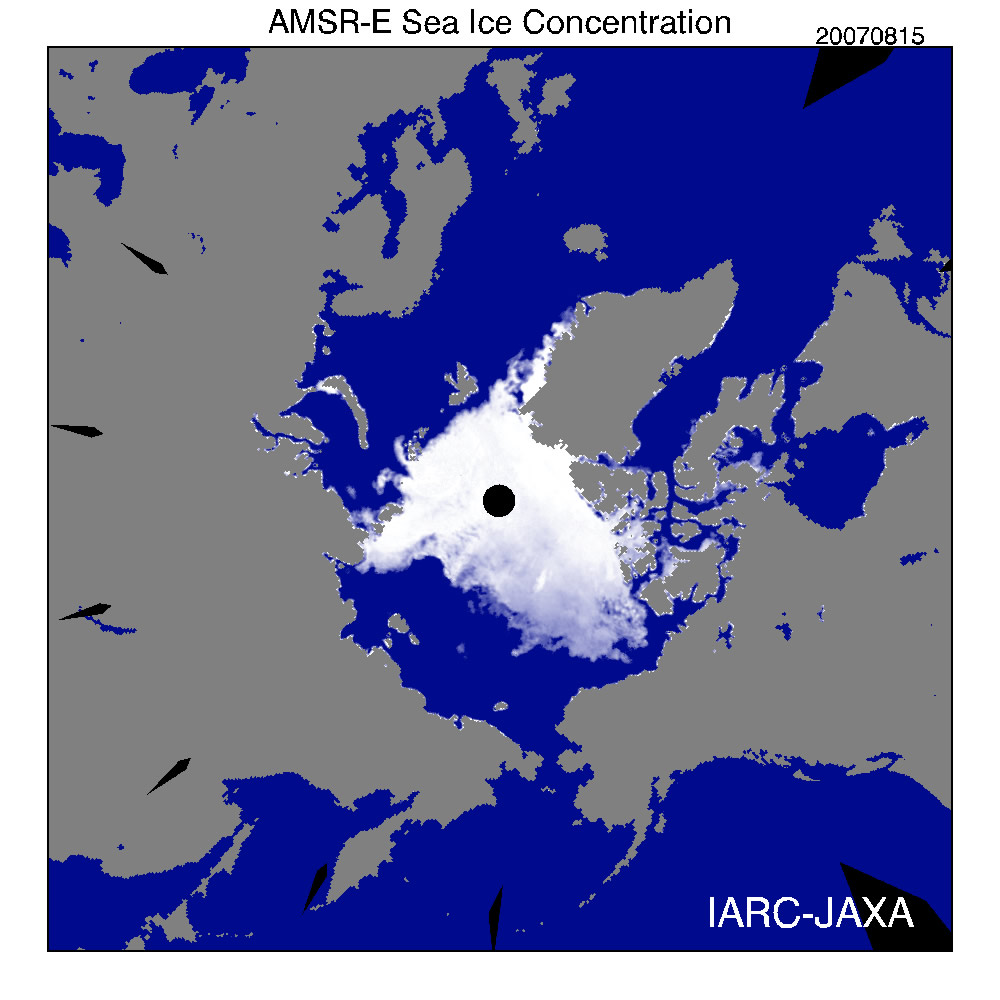
The Japan Agency for Marine-Earth Science and Technology (JAMSTEC, led by President Yasuhiro Kato) and the Japan Aerospace Exploration Agency (JAXA, led by President Keiji Tachikawa) cooperatively analyzed oceanic and atmospheric observation data and sea ice data acquired by satellites, and found that the sea ice area in the Arctic Ocean has been decreasing at a much faster pace than expected compared to the previous worst record in the summer of 2005. After satellite observations started in 1978, the observed area shrunk to its lowest level on August 15, 2007. Ice melting normally continues until mid September, thus further shrinkage of the sea ice area is expected. The observed phenomenon significantly exceeded the forecasted model submitted in the Intergovernmental Panel on Climate Change (IPCC) fourth Assessment Report, and the big difference tells us that the model may not precisely reflect the actual situation in the Arctic Ocean.
Boiled down, this implies that the Arctic is warming up faster than anyone has been anticipating. Decades faster! They had been talking about an ice free summers - ie loss of the permanent pack ice - in the Arctic by possibly the 2050s and they were surprised about that prospect. Now, if the Japanese are correct, the Arctic, if the current trends continue, could be ice free far, far sooner. That would be sooner, as in 2010s sooner. The Japanese have one really, really good comment: our models are completely inaccurate for the Arctic and it seems we don't understand what is going on there.
No comments:
Post a Comment